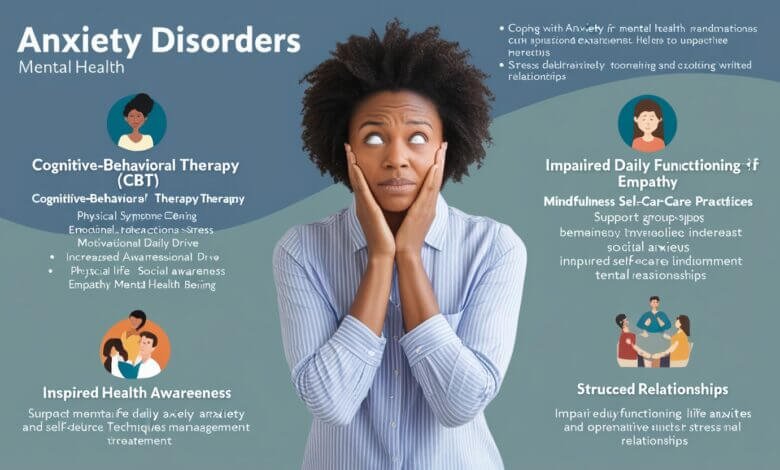
Table of Contents
Anxiety is a natural response to stress, characterized by feelings of tension, worried thoughts, and physical changes like increased blood pressure. While everyone experiences anxiety at some point, chronic anxiety can significantly impact an individual’s life.
This article explores the effects of anxiety, highlighting both its detrimental and potentially beneficial aspects.
The Impact of Anxiety on Individual Life
1. Emotional and Psychological Effects
Anxiety disorders can severely affect emotional well-being. Individuals may experience constant worry, fear, and a sense of impending doom. These feelings can lead to mood swings, irritability, and a diminished ability to enjoy life. Over time, chronic anxiety can contribute to the development of depression, exacerbating mental health issues.
2. Physical Health Implications
The physical symptoms of anxiety include headaches, muscle tension, fatigue, and insomnia. Long-term anxiety can lead to more serious health problems, such as cardiovascular issues and a weakened immune system. Stress and anxiety reduction techniques are crucial for maintaining physical health.
3. Social and Professional Life
Anxiety can also impact social interactions and professional life. Individuals with anxiety disorders might avoid social situations, leading to isolation and loneliness. In the workplace, anxiety can reduce productivity, hinder career advancement, and increase absenteeism.
Pros of Anxiety
While anxiety is often seen as purely negative, it can have some potential benefits when experienced in moderate amounts.
1. Increased Awareness and Preparedness
A moderate level of anxiety can heighten awareness and improve focus. This can be beneficial in situations that require quick thinking and problem-solving. For instance, anxiety before a presentation can motivate better preparation and enhance performance.
2. Motivational Drive
Anxiety can serve as a motivational tool. The fear of failure or negative outcomes can push individuals to work harder and strive for success. This can lead to personal and professional growth when managed effectively.
3. Enhanced Empathy
Experiencing anxiety can increase empathy and understanding towards others facing similar challenges. This can improve social bonds and foster supportive relationships, contributing to better mental health support groups and networks.
Cons of Anxiety
Despite some potential benefits, the cons of chronic anxiety often outweigh the pros.
1. Mental Health Deterioration
Chronic anxiety can lead to severe mental health issues, including depression and panic disorders. It can create a vicious cycle where anxiety feeds into other mental health problems, making recovery more challenging.
2. Impaired Daily Functioning
Persistent anxiety can interfere with daily activities. Simple tasks may become overwhelming, leading to procrastination and avoidance behaviors. This can affect personal and professional responsibilities, diminishing overall quality of life.
3. Strained Relationships
Anxiety can put a strain on personal relationships. Constant worry and irritability can lead to misunderstandings and conflicts with loved ones. Over time, this can result in a lack of support and further exacerbate anxiety symptoms.
Coping with Anxiety
Effective anxiety management techniques are crucial for mitigating its negative impact. Cognitive-behavioral therapy (CBT) for anxiety is one of the most effective treatments, helping individuals reframe negative thought patterns. Mindfulness for anxiety and other self-care practices can also provide relief. Joining mental health support groups can offer a sense of community and shared understanding, which is beneficial for recovery.
Anxiety, while often seen as a negative force, has both pros and cons. Moderate anxiety can enhance preparedness, motivation, and empathy. However, chronic anxiety can severely impact mental and physical health, social interactions, and professional life. Implementing effective anxiety management techniques and seeking professional mental health treatment is essential for those struggling with anxiety disorders. By understanding and addressing anxiety, individuals can improve their overall well-being and lead a more balanced life.




